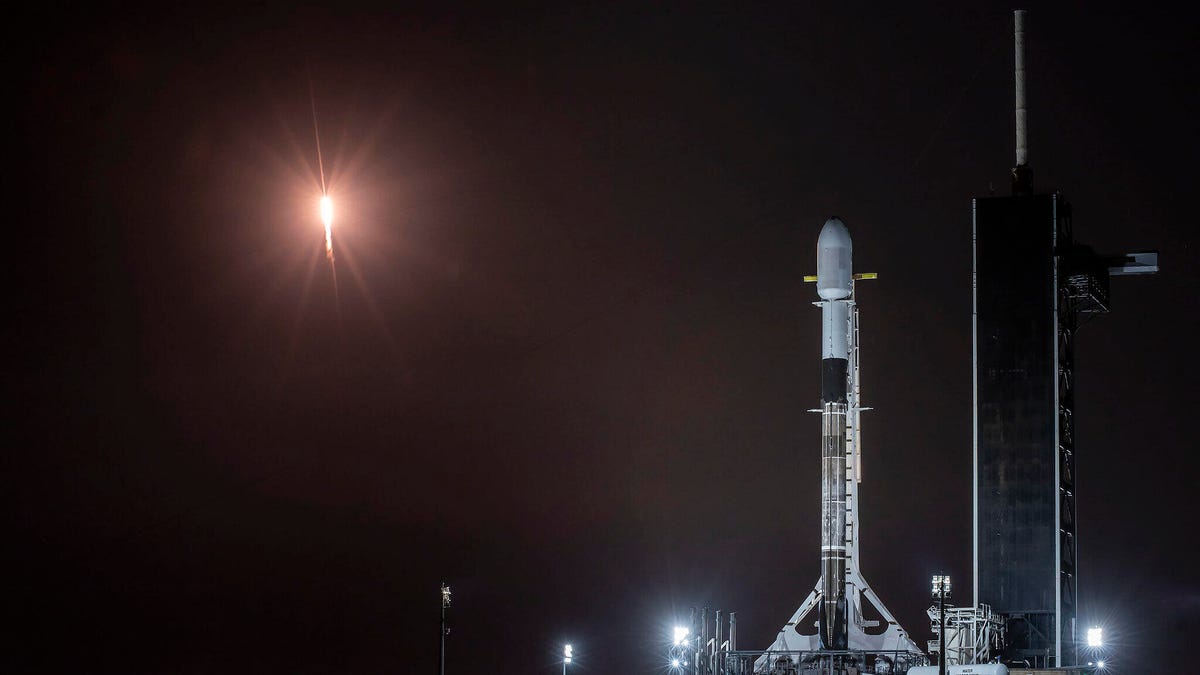SpaceX late-night Starlink launch sends 60 more satellites to orbit
Elon Musk's rocket company is on a roll.

A Falcon 9 loaded with Starlink satellites prepares for launch.
SpaceX is busy sending satellites to space to keep up with the rollout of its Starlink global broadband network. Early Thursday morning, after many delays, it lofted another batch of its orbiting routers to space.
Meanwhile, I've received an email notification that the beta version of the high-speed internet service is now available in my area, which is significantly farther south than the initial beta offering in Canada and the northern US. (I'm at latitude 36 degrees in the Northern Hemisphere. Vancouver is at 49 degrees.)
It's a sign the expansion of Starlink is on track, but Elon Musk's company needs to keep blasting more flying routers into orbit to keep growing and meet the requirements of its license to operate from the US Federal Communications Commission.
The 60 satellites launched Thursday at 12:24 a.m. PT from Florida's Cape Canaveral, making five Starlink missions for 2021 so far and keeping the company on track to meet its license requirements.
Liftoff! pic.twitter.com/VVic5UKRnU
— SpaceX (@SpaceX) March 4, 2021
This particular set of Starlink devices was delayed from launching at least 12 times due to different technical and weather-related issues. That sounds like a lot, but delays are the name of the game with space launches, and it's far more unusual for a mission to never be postponed at all.
Thursday's launch came after the previous Starlink mission ended with a lost booster that missed its landing on a company droneship and splashed down in the nearby ocean instead. In Thursday's predawn darkness, a different Falcon 9 met no such fate, settling onto a floating pad to make a record-tying eighth landing.
The mission also came just hours after SpaceX launched and landed the latest prototype of its Starship Mars rocket, SN10, in Texas, although the vehicle exploded on the landing pad several minutes later.
The next Starlink launch is set for Sunday evening.
Follow CNET's 2021 Space Calendar to stay up to date with all the latest space news this year. You can even add it to your own Google Calendar.

